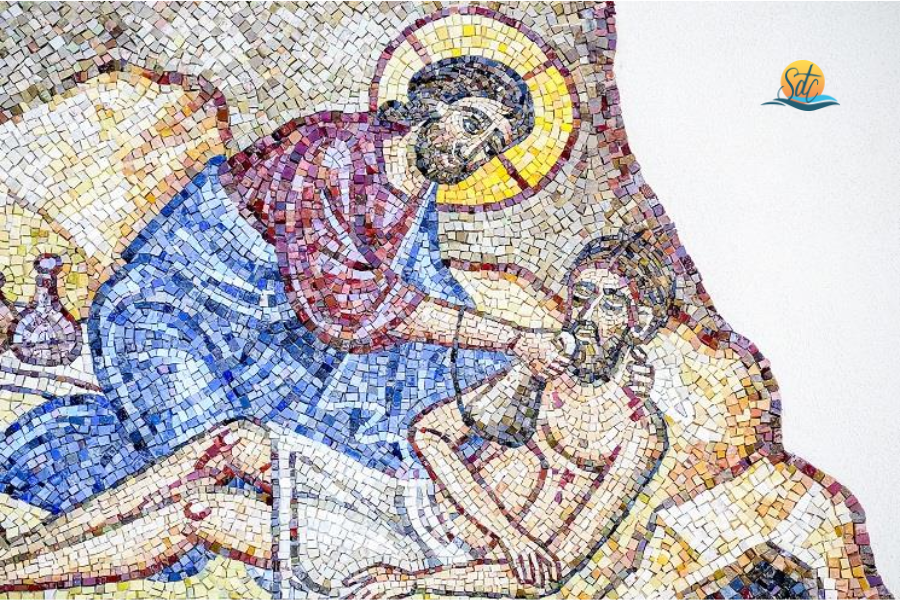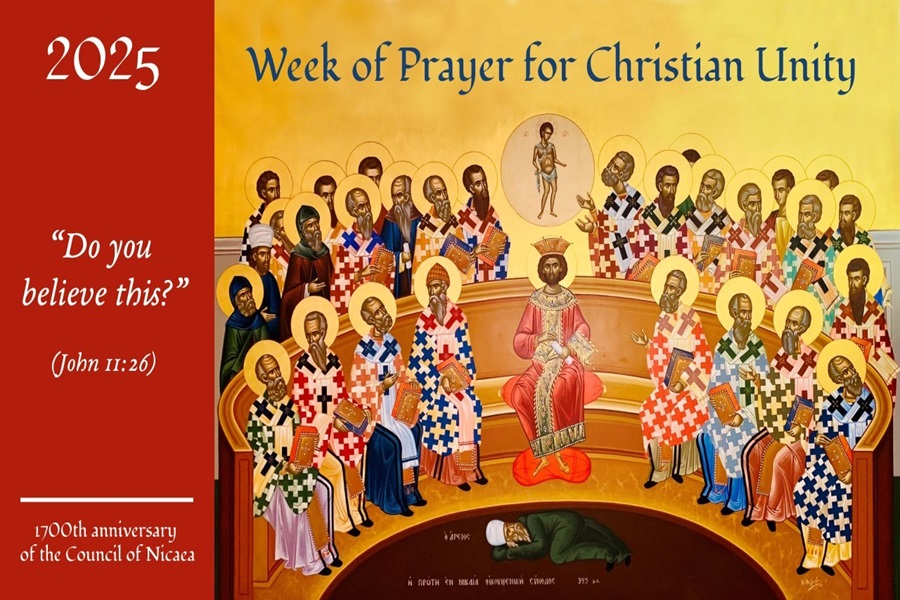The Week of Prayer for Christian Unity in the Northern Hemisphere begins today, Jan. 18. The celebration will last until Jan. 25. In the southern hemisphere, where January is a vacation period, churches celebrate the Week of Prayer on other dates, for example at the time of Pentecost-as suggested by the Faith and Constitution movement in 1926-a period equally symbolic for Church unity.
The theme, however, is common and this year is based on Luke’s gospel, “You shall love the Lord your God … and your neighbor as yourself”.
“Teacher”, he said, “what must I do to inherit eternal life?” He said to him, “What is written in the law? What do you read there?” He answered, “You shall love the Lord your God with all your heart, and with all your soul,and with all your strength, and with all your mind; and your neighbour as yourself.” And he said to him, “You have given the right answer; do this, and you will live”. (Luke 10:25-28)
The Week of Prayer for Christian Unity, officially initiated by the Episcopalian Reverend Paul Wattson in Graymoor, New York in 1908 as the Octave for Church Unity, is a time when all Christians around the world, belonging to different traditions and denominations, come together spiritually to pray for the unity of the Church.
The material to be used, attached here, is therefore intended for flexible use.
The Burkina Faso Ecumenical Group
The commentary texts, prayers and directions on how to live this moment were prepared by an Ecumenical Group from Burkina Faso, coordinated by the local Chemin Neuf Community. In them the proposal of eight schemes for celebrating the Word of God, designed to encourage common prayer together with brothers and sisters of the different Confessions present in the various territories.
It is no coincidence that this local drafting group was chosen.
Social coexistence in Burkina Faso, a West African country with a population of 21 million people belonging to different ethnic groups, is a significant challenge. With about 64 percent of the population of Muslim faith, 9 percent following traditional African religions, and 26 percent of Christian faith (including 20 percent Catholic and 6 percent Protestant), the country reflects a complex cultural and religious diversity.
Security conditions and social cohesion have declined sharply since the major jihadist attack in 2016. The proliferation of terrorist attacks, lawlessness, and human trafficking led to a tragic death toll of 3,000 and nearly two million internally displaced persons. Thousands of schools and health centers have been closed, and much of the socio-economic infrastructure has been destroyed, contributing to an unprecedented humanitarian crisis.
Christian communities, in particular, have been hit hard by armed attacks. Priests, pastors and catechists have been killed, while others have been kidnapped. Because of the terrorist threat, most Christian houses of worship in the country’s northern, eastern, and northwestern regions have been forced to close. Religious celebrations are still possible only in large cities and under police protection.
Despite the present challenges, remarkable interreligious solidarity is developing in Burkina Faso, where religious leaders are actively promoting reconciliation and social cohesion. A tangible example of this commitment is the Commission for Christian-Muslim Dialogue of the Catholic Bishops’ Conference of Burkina Faso-Niger.
The Chemin Neuf Catholic Community, made up of lay people and religious, was founded in 1973 in Lyon, France, by Jesuit Father Laurent Fabre. Today it has about 2,000 brothers and sisters in about 30 countries. It is an ecclesial reality with a strong ecumenical vocation. “We dare to believe in the visible unity of the Church and receive as a mission to work for it with all our strength having the desire to make our own the prayer of Jesus who is the first to pray for unity”.
Click here to download the material:
Week of Prayer for Christian Unity 2024







